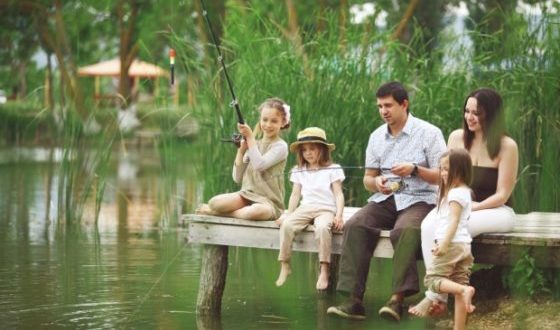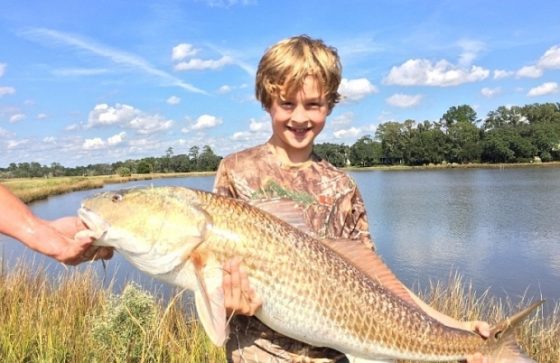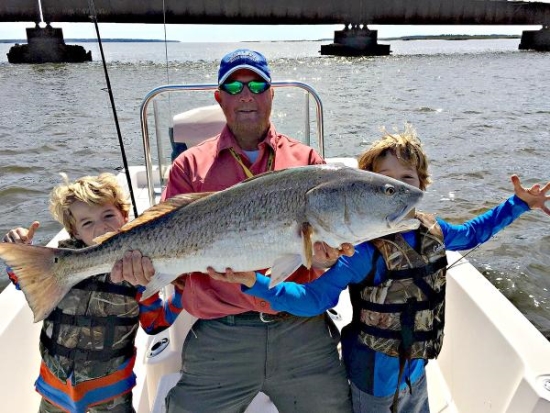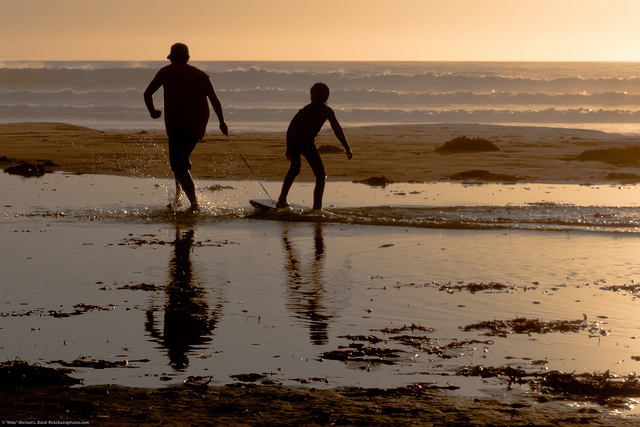Seven Life Lessons Fishing Can Teach Kids
For centuries, families have enjoyed fishing as a means of sustenance, entertainment and camaraderie. Anyone near the water can participate.
You don’t have to be a brawny outdoors man. You just need to love being around water.
Older anglers are fond of the adage, “Fishing is a metaphor for life.” In many ways, fishing is related to our lives – how we withstand boredom, interact with each other and face adversity.
Through fishing, adults can impart such jewels of wisdom on the next generation. While fishing, children unknowingly learn many useful life lessons such as
- being self-sufficient,
- providing for themselves and
- knowing when to tough it out.
Also, they learn you can accomplish anything you set your mind to and there’s beauty in solitude. However, taking your kids fishing can also inspire life lessons that build character and instill strong values.
Relaxation is Vital to your Mental and Physical Health
Stress is a natural part of life. Research has shown chronic stress is dangerous to your mental and physical health.
Being able to reduce stress through relaxation is an integral part of healthy living. Fishing is known to have positive effects such as reduced feelings of fear, anger and sadness.
Additionally, the act of being outdoors helps you to feel happier and calmer. Listening to nearby sounds like chirping birds, lapping waves or rhythmic rowing helps decrease the heart rate and increase feelings of calm.
Fishing as a family may also help your kids unplug from technology and turn to nature.
Accepting that Failure isn’t a Reflection of Self
Failure can happen no matter how prepared you are for something. You may get up early to hit your favorite fishing spot before anyone else arrives.
You can bring your best reel and line with a tackle box of your go-to lures and the newest hooks – but the fish may still not bite.
There will be times when we fail to reach the goals we set for ourselves like the points we score in a sporting match, the grades we get on our report card and how many fish we take home.
Patience is a Necessary Skill
A biting fish is exciting. Adrenaline pumps through your body as you anticipate the reward of your time spent on the pier or boat, but that burst of excitement and energy isn’t constant.
You spend much of your time preparing your equipment, wading toward the perfect spot and waiting for fish to take the bait. Depending on the weather conditions, an angler may have to wait hours before they feel the first tug of a biting fish.
Fishing requires patience. Long stretches of seemingly idle time are likely to pass before hooking a fish. Patience is being able to tolerate this waiting without becoming frustrated or bored.
Idle Time isn’t Wasted Time
Fishing reminds us that time sitting idle isn’t wasted, and that it’s not really idle time at all. That time, when we’ve disengaged from external cues, gives us a chance to relieve stress and reconnect with ourselves.
It’s also an opportunity to focus on other aspects of our lives like family, friendships, talents and nature. Idle time is like recharging a battery.
No one would consider the time our devices spend plugged into the wall as wasted time. On the contrary, we understand our devices require recharging to keep them operational.
Like batteries, people need time to recharge.
Planning is an Important Part of all Endeavors
A lot of thought and preparation goes into a fishing trip before you ever set foot near the water. Involving children in that part of the excursion is an excellent opportunity for them to learn the importance of planning and how to do it.
Planning for the future is a skill that applies to all aspects of life. Many of the steps involved in planning a fishing trip will transfer to the school, home and work activities.
You must think of your expected goals, pack the right tools, budget finances and time, figure out if you have enough materials and consider the unexpected.
Helping a relative or friend plan their next fishing excursion gives children a chance to practice time and resource management under the guidance of a knowledgeable adult who can steer them in the right direction. The experience won’t feel foreign when they’re tasked with similar situations later in their lives.
New Experiences can be Fun
Most people appreciate familiarity. They enjoy visiting the same places, seeing the same people and doing the same things. The challenge of activity outside of that normalcy tends to induce feelings of self-consciousness, doubt, fear, and anxiety.
Children encounter other new experiences while out fishing. Activities, like cleaning fish, reading a map and learning to paddle are largely unfamiliar. They’re learning new skills that test their abilities. After all, it takes practice for little hands to bait a hook.
Learning such a new, detail-oriented activity wouldn’t ordinarily be as fun as it is when done with friends on the water listening to nature’s soundtrack.
Fishing helps children learn that new things can be fun.
Fishing builds Confidence
Confidence is the foundation of success, positive self-esteem, and independence. As kids become more proficient at fishing, they’ll grow more confident, and that confidence will spread to other areas of their life.
Through fishing, kids become adept at standing and walking on a boat without falling. They learn to use knives and hooks safely and not to fear failure.
Children also learn to trust their body, their education, and their instincts, all of which they can apply to activities outside of fishing. Confidence is crucial in sports when trying to make a tough shot, in school when working on a project and in their careers when they go for a promotion.
It’s important for parents to give proper guidance to their children especially in their learning years. Besides helping your child learn these life lessons fishing can teach kids, here’s more on how to be the best parent you can be.








